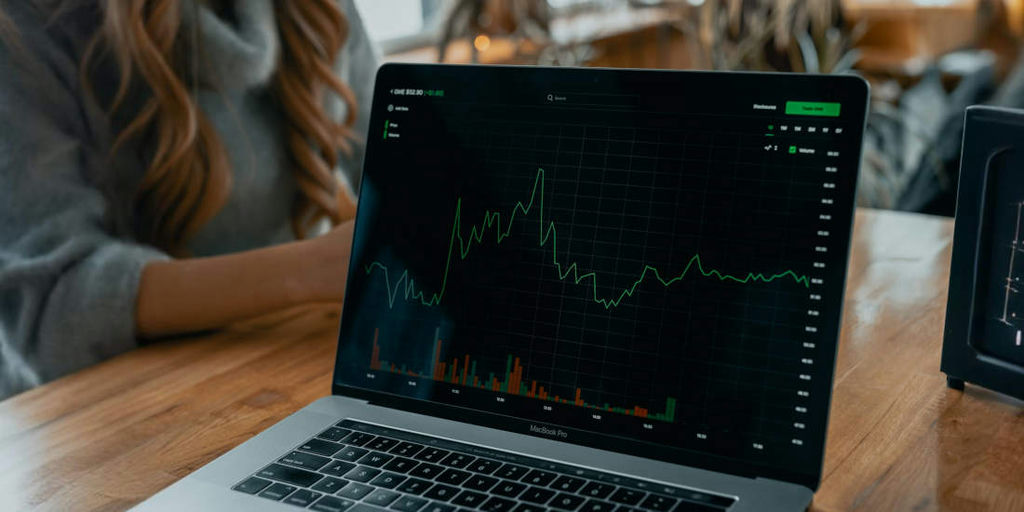Make sustainable investments
- Earth Points
- 60
- Ease
- Medium

Photo by Micheile Henderson on Unsplash
Description
If you are invested in stocks or are thinking of investing in stocks, consider choosing specific stocks or mutual funds (collections of stocks) which focus on sustainability and on businesses that benefit people and the planet.
These funds will probably also be good for your profits too! There is a lot of evidence that companies with strong sustainability profiles are more profitable than those that profit from socially and environmentally damaging activities. For example, the return on investment in oil companies has been terrible in the last ten years or so.
This is because those companies are less exposed to risk from accidents or regulatory penalties and have been found to be more resilient in times of crisis. High sustainability standards associated with these investments also usually indicate higher quality company management criteria, boost brand reputation, and attract the most talented workers. All of these factors can increase the company’s value and, therefore, how much profit you can potentially make on your investment, all while helping to create a better world — a win-win!
To use an example for one sector, Green Energy Investment is estimated to be upwards of 2 trillion dollars over the next ten years. A lot of smart money is moving in this direction.
Remember, the value of any investment can fall or rise. Understand your risk tolerance before you start, and if possible, speak to a specialized investment manager.
Tips
• Search online for rankings of the top sustainable funds and stocks. Lists like this one are an excellent place to start finding a good fit for your interests and needs.
• You can also search by specific funds and get more ideas from the Fossil Free Funds website. It tends to focus on the United States and globally oriented funds.
• It is critically important to consider the expense ratio of any fund you invest in. This is how much money the fund manager takes per year for managing the fund. Anything above 0.50% is extremely high and will cost you a tidy fortune over the years.
• There is a big difference between investing in funds (often called mutual funds) and putting money in individual stocks. Funds are collections of stocks, bonds, and other assets managed by professionals whose job it is to analyze a load of market information and achieve the best returns. They are generally less risky than attempting to invest in individual companies that you have hand-picked.
• If you are new to investing, speaking to a financial advisor is a good place to start. Go for a no-commitment consultation to begin. This is a good opportunity to find out how open to risk you are and the kinds of products (e.g., equities, bonds) that might be right for you, even if you decide not to purchase their services. The balance of different products will be very personal to you and depend on how much risk you are comfortable with.
• A financial advisor (FA) is an easy way to invest if you want a hands-off approach, although convenience does come at a cost. FAs will often charge an upfront fee and take a percentage of future profits. Ensure you are clear about the fees involved and check out a few different FAs before committing. Many FAs often have a financial incentive that benefits their organization and not necessarily you.
• If you are happy to do some research in return for keeping all of your hard-earned cash, head to online platforms that charge a flat fee and can provide a better value than a financial advisor. The downside to this approach is that there is a lot of information to consider, so you will need to do a fair bit of digging to find the funds that are right for you.
• Useful investing sites:
-
Investopedia: provides easy-to-read guides through terminology.
-
Morningstar: has a whole host of financial information about different investment funds. You will need to sign up, but it is free. You can search any fund here and check out its sustainability credentials as well as all the financial information you need to decide if it is right for you.
• Many (although not all) funds have a minimum investment, which can make it hard to spread your money across a range of products and funds. Diversifying across funds and investment products reduces your risk. But you can only do what you can do.
• Market volatility makes it impossible to guarantee short-term returns. For this reason, you should invest with at least a five-year time frame in mind, as markets and currencies fluctuate and so does the value of your investments. This means it can take time for you to see a general trend in how your assets are doing. Over the last 200 years, this trend has generally been upward for investors because the global economy has been growing, and where there is growth, profit is to be made. But remember, there are no guarantees that you will get back the amount you originally invested, and we are not financial advisors!
NOTE: This information should not be relied upon as research, investment advice, or a recommendation regarding any products. This material is strictly for educational or informational purposes and is subject to change.

